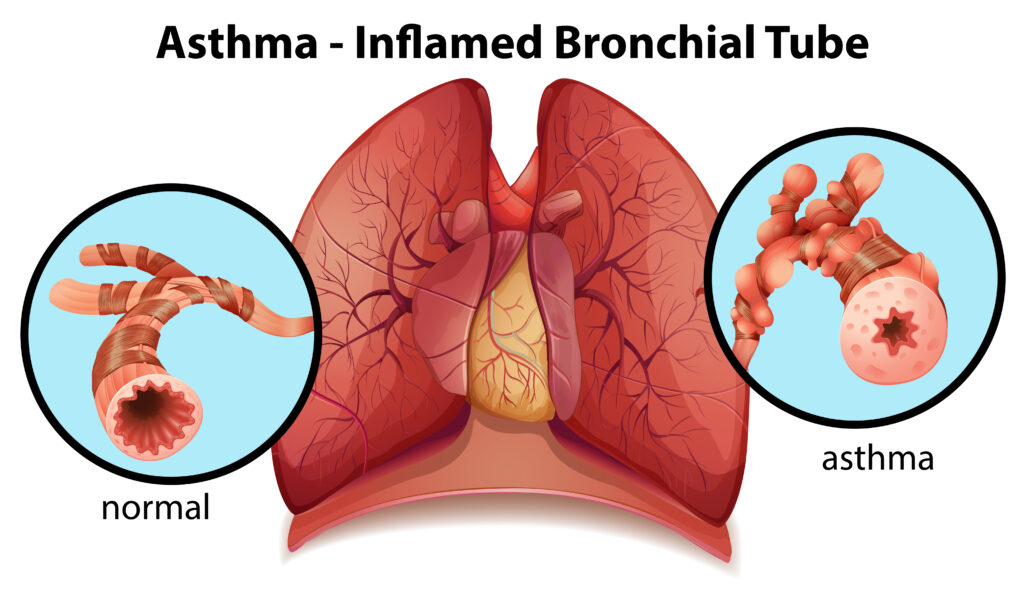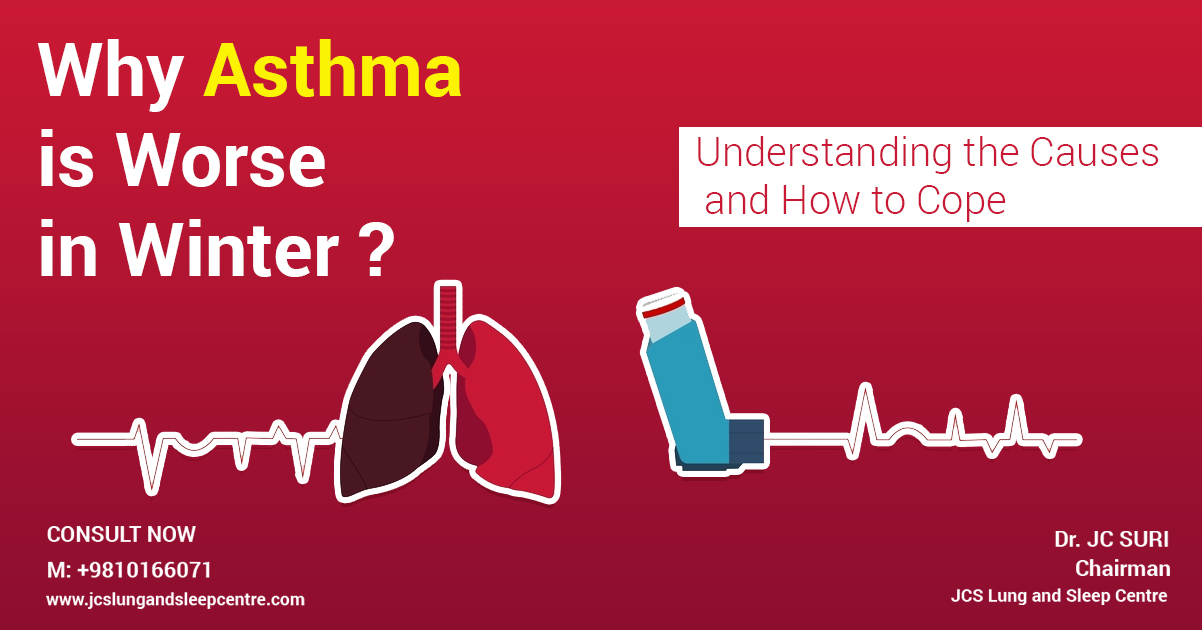Stay Safe: Essential Tips to Avoid Asthma Triggers This Summer
Summer, with its warm temperatures, long days, and abundant opportunities for outdoor activities, is a season many eagerly anticipate. However, for individuals with asthma, the summer months can pose significant challenges. High temperatures, increased humidity, and exposure to various allergens and pollutants can trigger asthma symptoms, making it difficult to breathe easily and fully enjoy the season. If you or a loved one has asthma, it’s essential to be proactive in managing the condition during summer. This comprehensive guide provides actionable strategies to help you stay cool and avoid asthma triggers, ensuring you can make the most of the season while prioritising your health.
Consult an Asthma Specialist in Delhi
Before the summer begins, schedule a visit with an asthma specialist in Delhi to review your asthma management plan. An experienced physician, like Dr. JC Suri, can help identify potential summer-specific triggers and develop targeted strategies to minimize their impact. With extensive experience in treating and managing asthma, Dr. Suri can offer personalized advice based on your medical history, environment, and lifestyle.
During your consultation, Dr. Suri can assess the effectiveness of your current treatment plan and make necessary adjustments to ensure optimal control of your asthma symptoms. This might include modifying medication dosages, adding new medications, or suggesting lifestyle changes to reduce exposure to triggers. Additionally, Dr. Suri can educate you on recognizing early warning signs of an asthma attack and provide guidance on quick and effective responses.
Monitor Air Quality and Pollen Levels
Pollen counts and air quality can significantly influence asthma symptoms during the summer. High pollen counts from blooming plants and trees can trigger allergic reactions and asthma attacks in those with pollen allergies. Similarly, pollutants like ozone and particulate matter can irritate the airways and exacerbate asthma symptoms.
Stay informed by regularly checking local air quality readings and pollen counts. Many weather apps and websites provide real-time data on air quality index and pollen levels. Plan outdoor activities based on these conditions to avoid spending too much time outside when air quality or pollen levels are poor. Consider using air conditioning or high-efficiency particulate air (HEPA) purifiers in your home to reduce indoor allergens and pollutants.

Stay Hydrated
Dehydration can worsen asthma symptoms, so staying hydrated is crucial, especially during the summer when increased physical activity and higher temperatures can lead to fluid loss. Aim to drink at least eight glasses of water daily, or more depending on your activity level and the weather. Avoid caffeinated or sugary drinks, which can contribute to dehydration and potentially exacerbate asthma symptoms.
Always carry a water bottle with you to ensure you have access to hydration, whether you’re exercising or enjoying outdoor activities. If you find yourself sweating excessively or engaging in prolonged physical activity, consider incorporating sports drinks or electrolyte-rich beverages into your hydration routine.
Manage Exercise Routine
Exercise is vital for overall health and well-being, but it can trigger asthma symptoms, particularly in hot and humid conditions. If you exercise outdoors in the summer, consider doing so early in the morning or late in the evening when temperatures are cooler and air quality is generally better. Avoid exercising during the hottest part of the day when heat and ozone levels can aggravate asthma symptoms.
Ensure you warm up properly before exercising and gradually increase the intensity of your activities to prevent sudden changes in breathing that can trigger an asthma attack. Pay attention to your body’s signals, and if you experience asthma symptoms while exercising, reduce the intensity or take breaks as needed.
Steer Clear of Outdoor Triggers
Outdoor triggers such as dust from construction sites, smoke from grills or campfires, and vehicle exhaust fumes can worsen asthma symptoms. Be mindful of your surroundings and take steps to minimize exposure to these triggers. Avoid areas with heavy smoke or outdoor pollution whenever possible. Consider wearing a breathing mask during outdoor activities to filter out allergens and pollutants.
If you encounter a trigger while outside, move to a cleaner, better-ventilated area immediately. Follow your asthma action plan, which may include using your rescue inhaler or seeking medical attention if necessary. Consult Dr. JC Suri for advice on managing outdoor triggers effectively.
Carry Medication
Always have your rescue inhaler or other prescribed asthma medications with you during the summer. Extreme temperatures and humidity can trigger asthma attacks, so having your medication readily available is essential for managing symptoms and preventing your condition from worsening.
Ensure your medications are within their expiration dates and stored correctly. If you plan to travel or spend extended periods outdoors, pack extra medication and store it in a cool, dry place. Consider investing in a medication case or carrying bag specifically designed for asthma inhalers and other respiratory treatments to ensure easy access when needed.
Wear Appropriate Clothing
Choosing the right clothing can help reduce exposure to asthma triggers and keep you comfortable during the summer. Opt for lightweight, breathable fabrics like cotton or moisture-wicking materials that prevent overheating and excessive sweating, which can aggravate asthma symptoms.
Consider wearing a face mask or covering during outdoor activities to reduce exposure to allergens, pollen, and pollutants. Look for masks designed for outdoor activities or those with filters that effectively block particles and contaminants.
Stay Cool and Comfortable
Heat and humidity can be significant asthma triggers, so it’s crucial to stay cool and comfortable during the summer. Seek shade or air-conditioned areas when outdoors, and use fans or air conditioning to maintain a comfortable indoor temperature. Avoid strenuous activities during the hottest parts of the day when temperature and humidity are at their peak.
If you need to be outside, take frequent breaks in cooler or shaded areas to prevent overheating and reduce strain on your respiratory system. Consider carrying a portable fan or misting device to stay cool and comfortable on the go.
Identify and Avoid Indoor Triggers
While many asthma triggers are outdoor-related, indoor triggers can also be problematic during the summer. Common indoor triggers include mold, pet dander, dust mites, and strong odors from air fresheners or cleaning products. Regularly clean and maintain your living space to reduce exposure to these triggers.
Use HEPA filters in your heating and air conditioning systems to trap airborne particles and allergens. Invest in a dehumidifier to help control indoor humidity levels; high humidity can promote the growth of mold and dust mites, which can worsen asthma symptoms.
Work Closely with Your Medical Team
Effective asthma management requires collaboration between you and your healthcare team. In addition to regular consultations with Dr. JC Suri, work closely with your primary care physician, respiratory therapist, and other healthcare providers to monitor your condition and make necessary adjustments to your treatment plan.
Regular follow-up visits with Dr. Suri and your healthcare team are essential to ensure your asthma is well-controlled and to address any changes or concerns you may have. Communicate openly about your symptoms, identified triggers, and any challenges you encounter in managing your asthma during the summer.
By following these tips and working closely with your healthcare team, you can successfully manage your asthma and enjoy a healthy, active summer.








